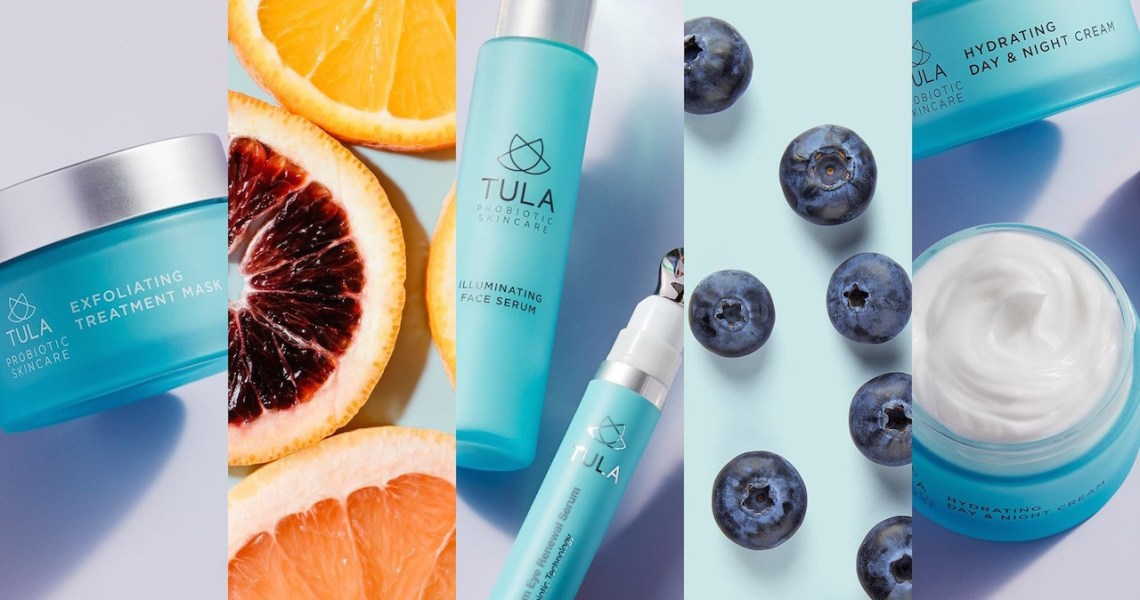When probiotic skin-care brand Tula was looking to expand its product portfolio, it looked to its skin-care quiz to drive its merchandising strategy.
The seven-question quiz, which launched at the end of 2017, gathers customer information such as age, the climate in which they live, their skin type and their lifestyle. It yields 300,000 data points per month, according to the brand, which declined to share how many people in total have taken the quiz. After the Tula team found that 48% of quiz-takers considered acne their main skin concern, they created an acne wash and spot treatment that launched on Sept. 30. The quiz also helped inform the ingredients that the brand opted to include, include aloe juice and ginger, said Savannah Sachs, Tula’s CEO. Of the customers with acne, 89% reported also dealing with two or more additional concerns like skin sensitivity or dryness.
“We want to make sure we’re using insights to offer products that attract new customers to Tula and drive loyalty,” said Dr. Roshini Raj, Tula’s founder.
While skin-care quizzes have become a savvy tool in the online shopping journey, their usefulness has matured beyond customer experience, product recommendations and retention. Like Tula, Curology and Unilever have leaned on them for product development and even category expansion.
In December 2018, Curology found through its skin-care quiz that approximately 10% of its sales were coming from customers with aging concerns like fine lines, said Fabian Seelbach, Curology svp of marketing. Curology’s quiz asks about skin type and conditions, requires the sharing of medical history and suggests users upload no-makeup selfies that are seen by a medical provider. To address the anti-aging concerns, Curology has shifted its attention to capture this customer demographic through Facebook and Pinterest ads and email communications, changing ad copy on its website to reference wrinkles and dark spots and working with older influencers, both on a paid and unpaid basis, such as YouTuber Angie Schmitt who has over 400,000 YouTube subscribers.
Skin quizzes can be a treasure trove of raw data. In 2017, IBM published a study that projects professional demand for data scientists to spike by 28% by 2020. Beauty companies recognize this need can stretch beyond the four walls of their expertise.
Unilever leaned on outside company, HelloAva, to develop its personalization quiz for the website AllThingsHair.com. As a CPG company working with retailers like Walmart, Unilever does not maintain as close a relationship with consumers as DTC-first brands. Tula, however, sees the majority of its revenue come through Tula.com, said Sachs, adding that the brand is actively hiring for full-time, dedicated data analytics and insights team members as the brand does not currently have any on staff. She declined to state figures, only saying that e-commerce sales were expected to more than double in 2019.
Ad position: web_incontent_pos1
“The reality is that the marketplace is evolving so dramatically, and with the fragmentation in the market, people want more relevant solutions,” said Gandhi. “We are looking for all types of ways to connect with consumers.”




